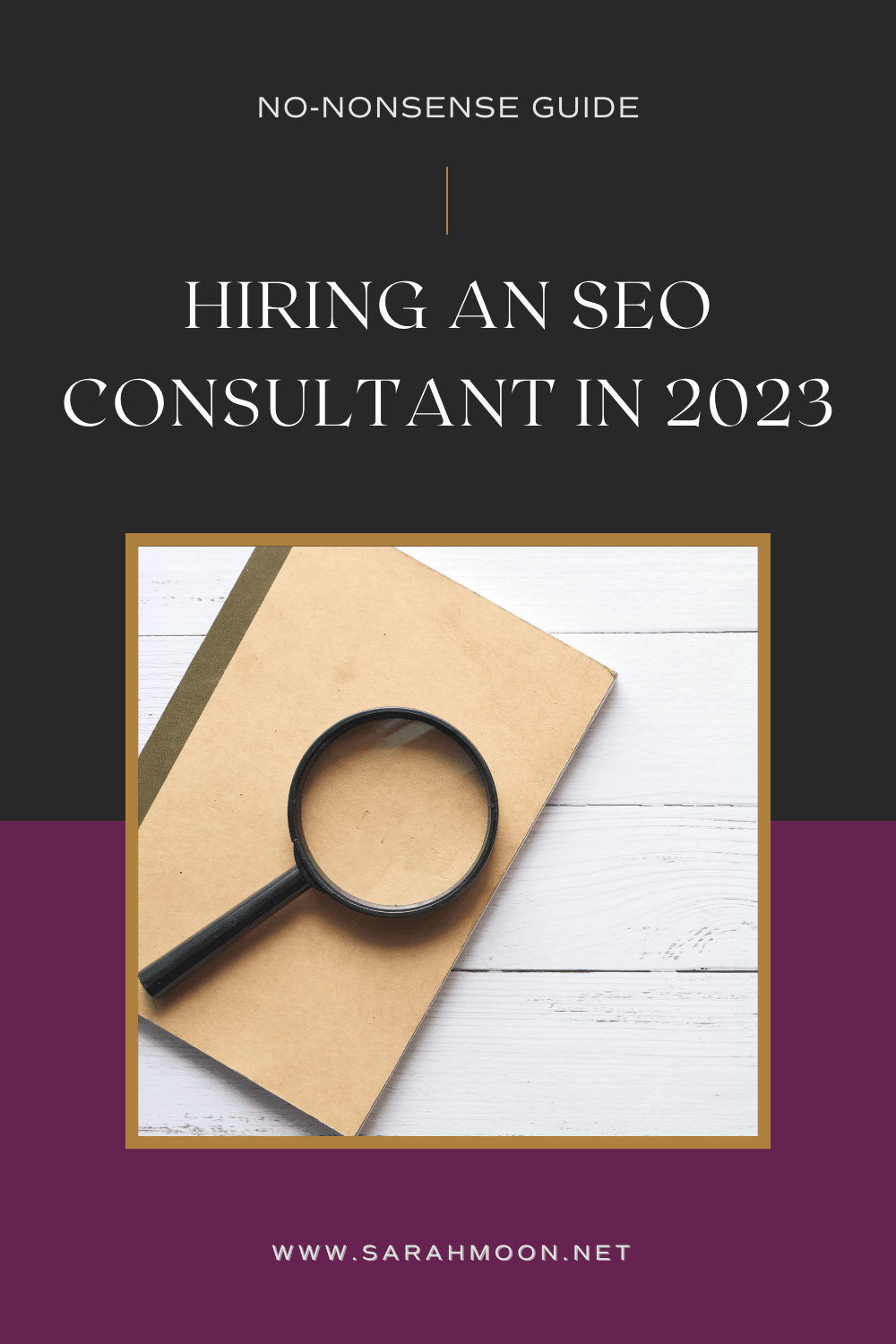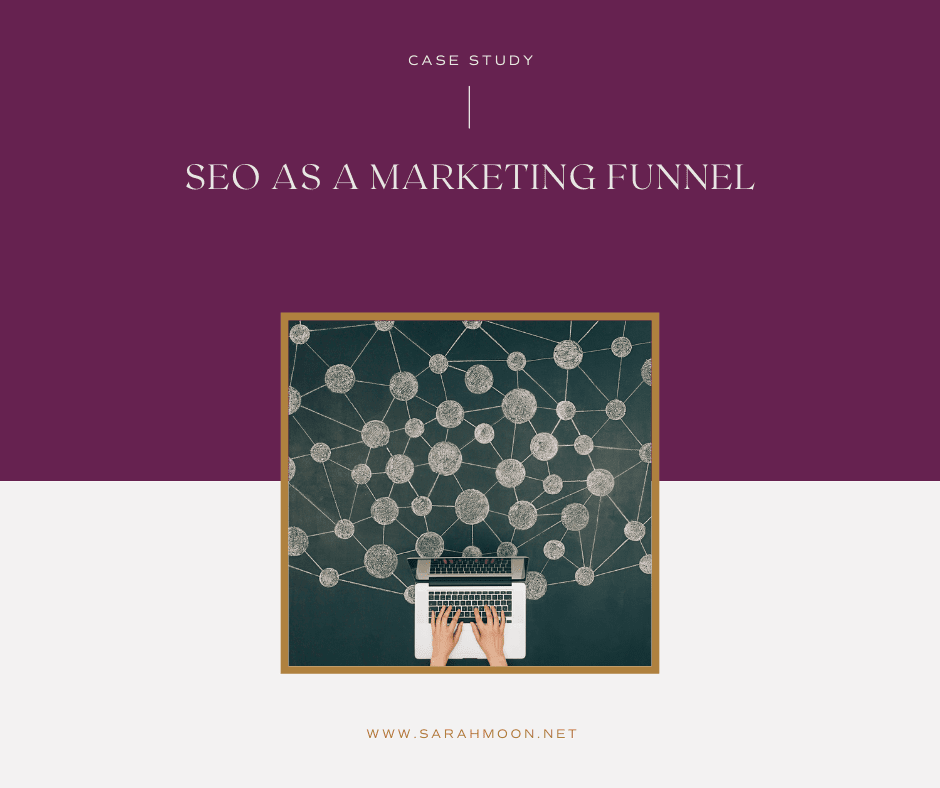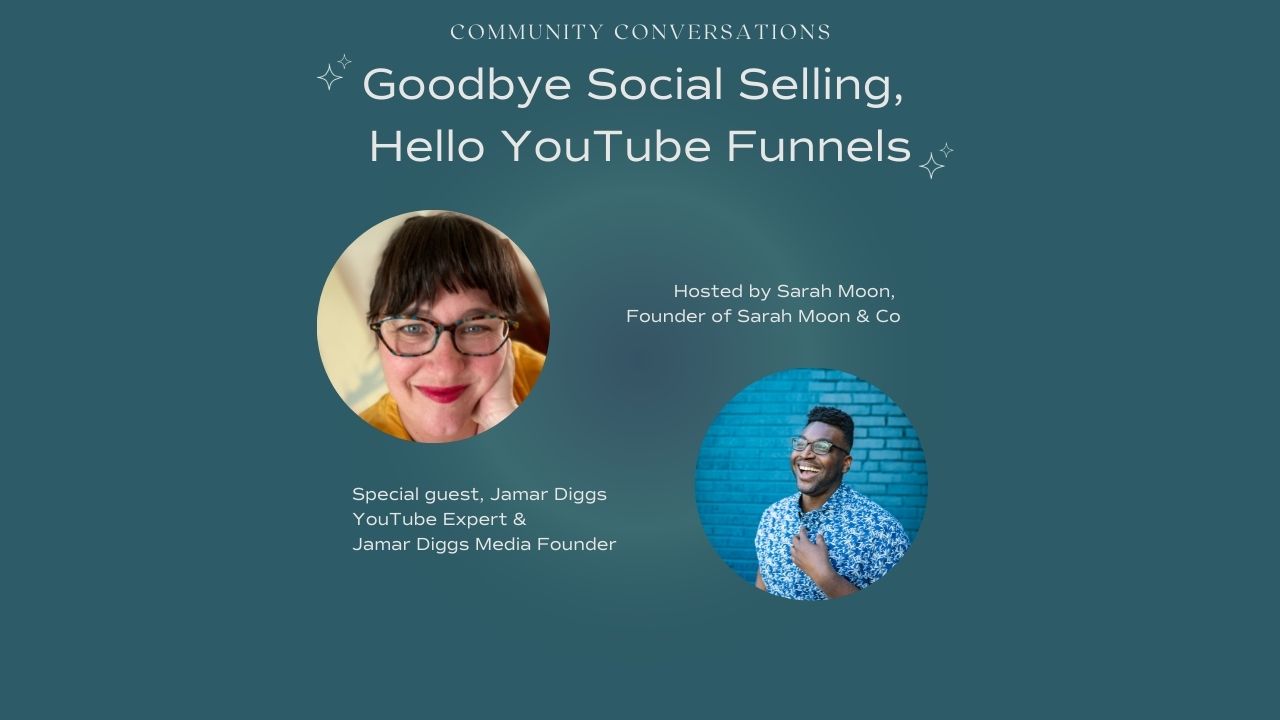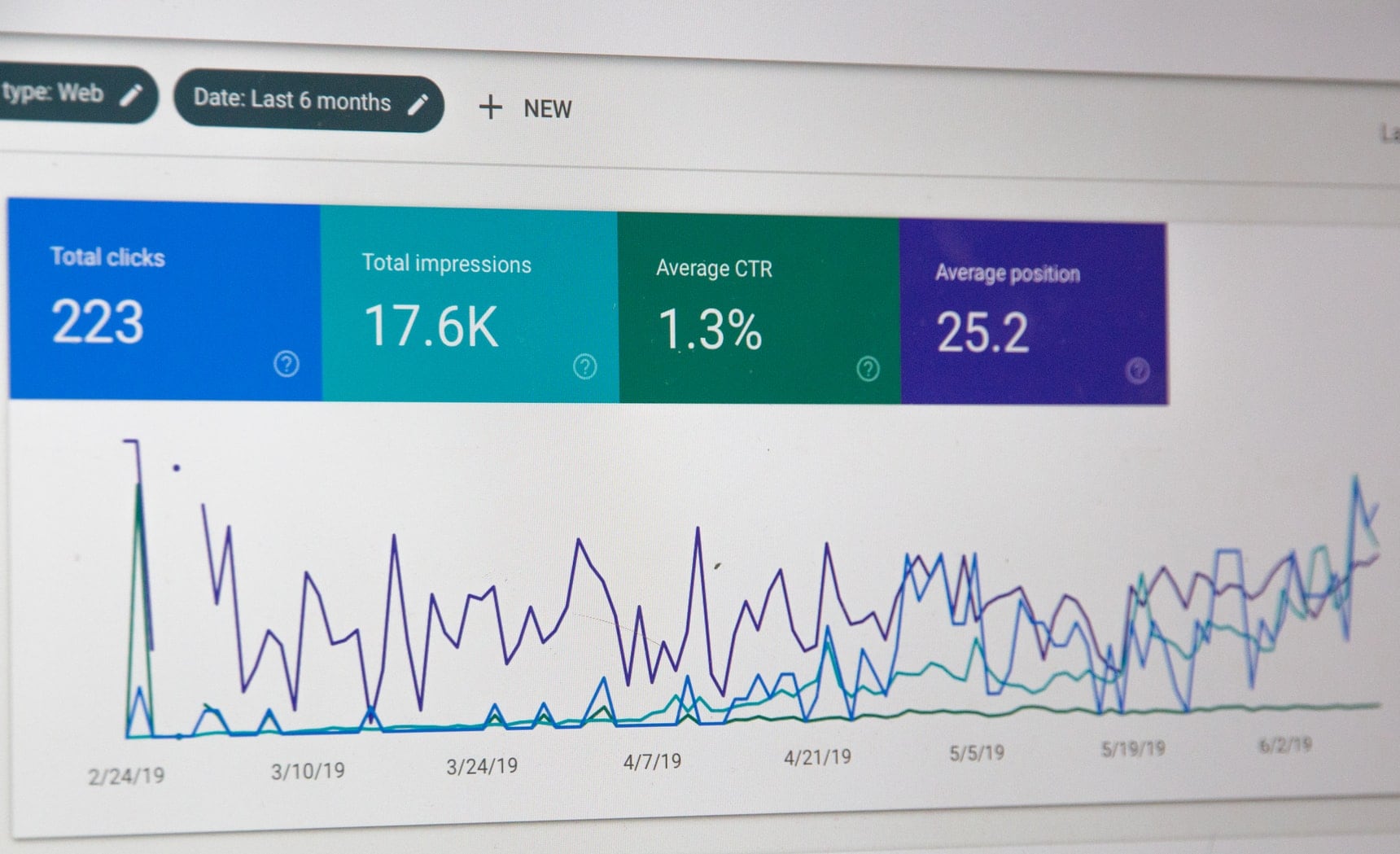- SEO Fact: 90 percent of online experiences start with a search—if you’re not thinking about SEO, you’re missing out on potential clients.
- Step One: Before hiring an SEO agency or freelancer, decide what your goals for SEO are.
- Step Two: Understand the difference between technical and content search engine optimization.
- Step Three: Understand (or ask about) the SEO limitations and opportunities regarding your website platform.
- Step Four: With your SEO goals in mind, it’s time to think about your budget.
- Step Five: Reach out to SEO companies that understand your business model.
- Step Six: Ask the company to walk you through an example SEO strategy, or share case studies from past clients.
- Step Seven: Do your SEO homework so you can work successfully with your selected expert.
- Step Nine: Once your initial SEO work has wrapped up, clarify the next steps.
- Step Ten: Monitor your progress following your initial search engine optimization.
- SEO is not a one and done activity or simply an item on a checklist.
If you’re focused on increasing your visibility online, growing your revenue, or diversifying your lead generation, search engine optimization (know by the acronym SEO) is likely a piece of the marketing puzzle.
SEO has been the primary source of leads for our company for many, many years, followed by networking, and it’s an outstanding longterm, evergreen strategy for most service-based companies.
SEO Fact: 90 percent of online experiences start with a search—if you’re not thinking about SEO, you’re missing out on potential clients.

Clearly, SEO an important part of any digital marketing strategy. It helps your website rank higher in search engine results pages (pros will often call this SERPs), which can lead to more website traffic and conversions. High quality SEO also helps to ensure that the website content is optimized for both users and search engines, which can increase trust in your brand.
While many small businesses and solopreneurs do fine with minimal SEO, thanks to DIY courses like ours, as you grow you may find that you hit the limit of what you can do to improve SEO on your own. This is when it’s likely time to think about hiring a professional SEO expert or agency to help you rank on page one of Google.
Ironically, simply Googling “SEO Expert” will likely just create more overwhelm, and not point you in the right direction. Instead, follow our step by step methodology on how to hire an SEO expert to make sure you make the right decision for you business.
Step One: Before hiring an SEO agency or freelancer, decide what your goals for SEO are.
Spoiler alert: Your SEO goal is not simply “get on page one of Google.” Your goal is not “get more traffic.”
While these are side effects of SEO, they are not goals.
Do you want to get more newsletter signups that will move leads into an email nurture sequence that leads to your course? Do you want to book more coaching clients that are well qualified to work with you? Do you want to schedule more free discovery calls to qualify leads?
All of those are great starting point answers, but I encourage you to get even more granular.
Do you want to reach a new audience of tech company founders so you can speak at their companies? Do you want to increase the leads you receive from qualified health coaching clients by 20%? Would you like to grow your mailing list by 20% and funnel those new leads into your flagship course’s email nurture sequence?
If you come to an SEO agency with some very specific goals in mind, an excellent professional will help you understand if your goal is achievable and what steps need to occur in order to move the needle in that direction.
Another reason this is important is specific to people who offer high end services. Oftentimes, high end service providers only need to onboard one or two new clients a month to reach their goals. That means that your SEO consultant may be able to target extremely niche keywords to drive a small but intentional audience to your website. In our business, we target quite niche keywords regularly because we simply are not a volume-based business.
Step Two: Understand the difference between technical and content search engine optimization.
Many of our clients first get SEO on their radar and approach us after receiving a cold email from a random technical SEO agency that flags “problems” with technical elements of their website after running an unsolicited audit of their sites.
A typical SEO audit often includes the following:
- Site speed
- Broken links
- Sitemap errors
- Meta title/description length
- Redirection errors
- Structured data problems
- Duplicate content issues
- Image issues (from descriptions to files size and more)
- And dozens of other elements.
Ahrefs has a great guide to what’s included in a technical site audit if you want to dig deeper into this subject.
Keep in mind that different SEO professionals have different elements they prioritize, so just because your consultant emphasizes one technical issue, doesn’t mean another is wrong for not doing so. Furthermore, if your SEO consultant specializes in a platform like Squarespace, they may pay particular attention to certain technical issues that are less of a factor than on WordPress.
Content SEO, on the other hand, is more of an art form, and different agencies have wildly different philosophies on this subject. You may also see this called “on-page” SEO, but we find that that confuses many of our clients, and “content” is a much more digestible way to talk about this subject.
What we mean by content SEO is centering the users of a client’s website in all their content, and using topical, focused keywords to increase the site to those ideal site users in the search engine.
In essence, in our SEO consulting projects, we answer the following three questions:
- What is the context/purpose of this specific page or post?
- What keywords that real humans search for make sense to connect to this page or post?
- How can we adjust this page or post’s content to better attract ideal visitors?
Again, every SEO pro has different approaches, so your consultant may ask different questions.
What you should take away from this breakdown, however, is that you should be focused on both sides of this SEO coin, technical and content—it’s a big mistake to overly-emphasize technical SEO. In fact, our clients often have platform limitations that create technical issues and we simply overcome those limits with a smart content SEO strategy.
Finally, while I won’t dive into it here, the third pillar of SEO is “off-page” SEO, which includes elements like backlinks, online reviews, even social profiles, and more. If you’re a local business, mix local SEO into a healthy SEO strategy as well.
Step Three: Understand (or ask about) the SEO limitations and opportunities regarding your website platform.
Some SEO consultants believe that you must use specific website platforms in order to rank in Google. However, this is generally a misconception.
WordPress is still the most popular platform on the internet (we use it for our own site, while most of our clients use Squarespace), so many of the general resources online about SEO are focused on that platform. However, we’ve had many, many clients perform very well on Squarespace with the right strategy. Here’s one:
“It’s [SEO] truly changed how I get clients and how I am found by my clients. And I am getting clients that are an exact fit for my business, who are willing to pay my prices without question…”
-Alyssa Hill, Threshold Healing
In this instance, our client loved the turnkey nature of Squarespace, meaning there was little maintenance needed, so we leveraged Squarespace SEO very strategically to help them rank for quality, highly-targeted keywords. Other companies may have other methods and have preferences for specific platforms—that doesn’t mean it’s “wrong,” but if you’re loving elements of your website platform, communicate that to the SEO experts you approach.
Essentially, if an SEO expert tells you you need to migrate your website to rank, ask really good questions.
Step Four: With your SEO goals in mind, it’s time to think about your budget.
Rates for professional SEO assistance vary wildly. Typically, most services begin with an audit, which some agencies offer for free (we do not recommend using free audits, as they’re designed to scare you), up to $1,500 or more.
How much should new businesses invest in SEO?
For newer businesses on a budget, we recommend setting aside at least $2,500 for any done for you SEO assistance. An audit only can be useful if you’re confident in making changes on your own and is less (ours is around $1,000).
How much should established businesses set aside for SEO?
More established businesses should budget at least $5,000 for done for you, hands on SEO work on their websites. We offer a unique SEO-marketing strategy option that lasts for three months and runs $3,335 per month. Other agencies may require a retainer, ranging from $1,500 per month on up—with the typical retainer contract being at least six months.
Shouldn’t SEO have been included with my website design? Why do I have to make a separate investment?
It depends! We take on very limited website design projects each year and ours do included this, but it’s nowhere near the norm. Typically, most design firms include “basic SEO” which is typically adding page titles and descriptions and submitting them to Google Search Console—which is definitely valuable in itself. However, most designers are not focused on this aspect of their designs (and that’s absolutely okay).
Step Five: Reach out to SEO companies that understand your business model.
I worry less about SEO experts having experience with a specific niche (this can be learned via research), but understanding your business model is critical.
This can be both a macro and micro question. For example, we do not work with ecommerce brands (unless they want to work on search-first content planning) because our team simply doesn’t have the expertise in the area of product marketing, especially “low ticket” products such as T-shirts or stationary. On the other hand, we have deep knowledge about expertise or knowledge-based businesses, especially at the higher end of the spectrum.
Similarly, if you offer a productized service and want to build a search-first funnel to grow your leads for that service, you’ll want your SEO consultant to have knowledge of how people select a productized service. Or, if you sell courses like our client Kerstin, you’ll want to work with someone who understands the online course marketplace. Or, if you’re a coach, you’ll want to make sure that your SEO consultant knows why people hire coaches versus consultants or other specialists (and that coaching is still largely unknown as a discipline by many people).
Additionally, make sure that the SEO experts you’re talking to have experience helping companies attract searchers looking to invest in offers at your price point. A buyer with a price ceiling of $100 will have very different search intention than a buyer with a price ceiling of $10,000. This is where the nuance of search engine optimization comes into play the most.
All of this nuance is why we discourage people from using freelancer marketplaces like Upwork, and instead recommend working with a professional directly. It may be more difficult to find your perfect match, but that personal relationship will pay off!
Step Six: Ask the company to walk you through an example SEO strategy, or share case studies from past clients.
Keep in mind the SEO consultants are often bound by confidentiality agreements, so they may be limited in what they can share, but it’s completely reasonable to ask them to walk you through how they work with clients and what their approach is.
Here are some example questions that can be useful to ask a potential SEO consultant:
- What does your audit typically cover?
- Do you make recommendations for conversion optimization or will I need to find a marketing consultant to do this?
- Will you share a report detailing the changes with me?
- How do you recommend we measure progress in our SEO work?
- Will you recommend blog posts we should write to help bring in traffic? What does that typically look like?
You may also want to ask your potential SEO strategist about the nuts and bolts of their work, including questions like:
- How long does it typically take to see results?
- Will you help me optimize my off-site SEO?
- Do you provide supporting materials so we can continue to build on what you’ve created?
- Do you require a retainer or can we work together on a project basis?
- Will you help us tweak our copy to be more optimized for search?
In both sets of questions there are no right answers, but they need to feel right to you, for your business. These discussions should be a conversation for fit and to ensure you will collaborate well together.
Step Seven: Do your SEO homework so you can work successfully with your selected expert.
This may sound simple, but one of the biggest reasons clients struggle in their work with our team is that they don’t set aside the time to do their pre-work to ensure we have all the information about their businesses.
Be prepared to share details with your SEO strategist such as:
- Ideal client avatars;
- Details about your services and their pricing;
- Your capacity for content creation;
- Website traffic;
- Number of leads and customers from your website;
- and more—every agency has their own philosophy!
This work should be done by a leader in your company, not an assistant or staffer unfamiliar with the big picture of your business.
Step Eight: Stay engaged in the process after you hire your SEO consultant and ask questions if you’re ever uncertain or confused.
It may sound obvious, but SEO is something you need to stay engaged in.
For example, the agency you work with my recommend text changes on your website based on their keyword research. This may impact your messaging, so work with them to find a happy medium or weigh the trade-offs of not making that change.
This also means that if there are recommendations they make for the future, folding those ideas into your existing marketing plan to get the most bang for your buck. You want to be sure to use the resources they’ve created for you to their fullest!
Step Nine: Once your initial SEO work has wrapped up, clarify the next steps.
Every search engine optimization consultant has a different approach. Some may work on a project basis, others may use a retainer model.
There’s no “right” approach, but it’s important to know what you’ve committed to. For example, a client of ours came to us after they’d unknowingly committed to an $8,000 per month contract and it was very challenging to uncouple from that agreement. So, once the initial project has wrapped up, be sure you’re either explicitly continuing your agreement or moving on—no one wants a surprise, client or consultant!
If you were delighted by your experience with your SEO agency, ask them for options to retain them on a monthly or quarterly basis, or what the next steps are for continued progress. (And leave them a five-star Google review to help their SEO too.)
If you move on after the initial engagement, be sure to verify that you have documentation of what’s been done (a checklist, Loom video, or other document is helpful) so you can share it with new team members of future marketing strategists. Far too often do we see clients not knowing what their previous SEO company did—and while most are very kind and helpful when we reach out and ask, it does delay the work we’re doing.
We recommend creating a marketing “wiki” (think your own company wikipedia) in a database tool like Notion or even Google Drive so you can easily share any SEO work or marketing strategy down the line—trust me, Future You will be glad you did!
Step Ten: Monitor your progress following your initial search engine optimization.
We have a fabulous article about the fundamentals of website analytics that’s a great starting point for tracking your website performance. This goes into all the lingo you should know, and what you should consider measuring.
You should know that initially you may seem some unusual behavior on your website following an SEO overhaul.
Your traffic may go down (this is common, because your strategy may be narrowing your potential audience to one that’s primed to buy from you), your conversion rate may shift, and you may see people finding you in different ways. None of this is anything to worry about!
We recommend looking at search engine trends after a quarter and then adjusting and monitoring for another three months.
This way, you’ll have a strong pattern that’s not simply seasonal “blips” (technical term). Look at what you’re ranking for, which terms you’re showing up for most, and—most importantly, what inquiries you’re receiving from your website. Are these solid leads that are qualified to use your company? Has the number gone up but the conversion rate has not? These are all excellent pieces of data to continue to adjust your SEO strategy from as you evolve your business.
SEO is not a one and done activity or simply an item on a checklist.
Rather, think of your SEO strategy as fully integrated into your marketing plan, and as your SEO consultant as a key partner in your long-term growth (when it’s a great match).
If you’re a visionary business owner interested in working with a marketing team that infuses search into everything they do, you may enjoy working with us at SM&Co. Our promise to you is a no gimmicks, strategic experience that’s true to your business and and mission. If that sounds appealing, reach out to request a call with me (Sarah) and we can get to know each other.
Key Takeaways & Tips About Hiring an SEO Expert:
- Understand your goals & audience.
- Ask your consultant about if there are platform specific concerns or opportunities you may have.
- Be sure to talk to your SEO consultant about the underlying strategy behind your work together—go beyond just “doing SEO.”
- SEO is progressive, so be ready to build upon your initial work as appropriate.
- There are many approaches to SEO, so take care to find the perfect fit.
Want to learn more about SEO? These articles will guide you in engineering your own luck in the search engine!
Is it possible to market your business without social media in 2024?
Are you curious about marketing your business outside of social media? Read our how to guide to doing just that!…
The No-Nonsense Guide to Hiring an SEO Expert in 2023
If you’re focused on increasing your visibility online, growing your revenue, or diversifying your lead generation, SEO is likely a…
What is movement marketing?
Movement marketing is often misconstrued and deeply misunderstood. Learn what it really means and the five fundamentals behind this marketing…
Three Simple Answers to Common SEO/Google Questions
Wonder why Google is rewriting your page titles? Curious about why your rankings suddenly dropped? Sarah answers these questions and…
Case Study: Using SEO and content strategy to drive the right traffic
Wondering how to use SEO on your Squarespace website to get found by better clients? Read our case study about…
One Thousand Percent
Did you know that SEO drives 1000% more traffic than organic social media?…
YouTube as a Search Engine
Discover how YouTube is a search engine and how by leveraging search in YouTube, subject matter experts can say goodbye…
FAQ: Squarespace Search Engine Optimization (including 7.1)
Got Squarespace SEO questions? We’ve got answers!…
Search + Conversions = Huh?
Search engine optimization on your Squarespace or WordPress website isn’t the end, it’s a beginning—the next step is conversation optimization!…















 & Our Favorite Portland Coffee Shops
& Our Favorite Portland Coffee Shops